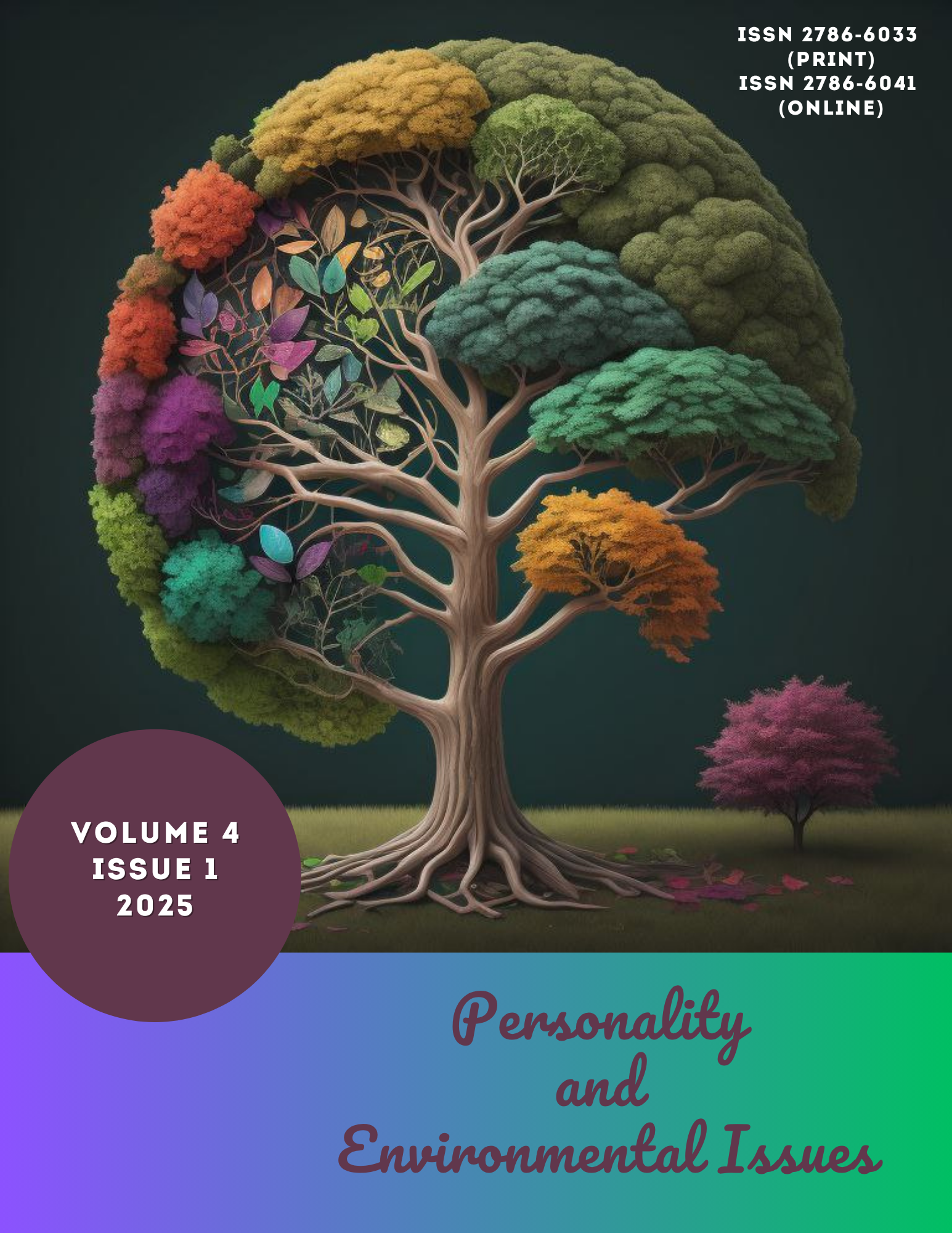Abstract
The article presents an analysis of modern views on the specifics of childhood trauma and the psychological well-being of an adult. The growing number of socio-political challenges caused by war, economic crisis, etc. does not exclude the presence of complex life experiences that require excessive efforts to maintain and preserve the psychological stability of adults. Unfortunately, traumatic situations can occur in a person’s life regardless of age, including in childhood. This experience often determines the further ontogenesis and prospects of psychological well-being, which determined the interest in this issue. The purpose of the study is to analyze scientific approaches to understanding childhood trauma and the prerequisites for the psychological well-being of an adult. The article applies methods of theoretical study of scientific literature (analysis, synthesis, generalization, comparison of approaches of scientists) in relation to highlighting the problem of childhood trauma and the psychological well-being of an adult. The theoretical methods used present the essence of the concept of childhood trauma and the representation of remote long-term consequences of psychological well-being in adulthood. As a result of the conducted scientific investigations, it was determined that childhood trauma is defined by complex negative events in the ontogenesis of a child, such as emotional, physical, sexual violence, emotional deprivation. It is emphasized that childhood trauma has a deep and long-term impact on the psychological well-being of an adult. It is highlighted that childhood trauma provokes the risk of forming personality pathology, emotional regulation disorders, psychosomatic symptoms, anxiety and depressive disorders. It is presented that the consequences of trauma affect the level of self-esteem, the quality of interpersonal relationships, provoke avoidance of help, and form negative attitudes about oneself and the world. Within the framework of adult life, this is manifested in a tendency to destructive forms of behavior, in particular, substance abuse, a feeling of inner emptiness. Modern scientific views are summarized, which emphasize the importance of supporting self-compassion, positive self-perception and a safe family environment as resources for psychological resilience in adulthood.
References
Arslan, G., Özdemir Bişkin, S., & Uzun, K. (2024). Self-Transcendence Explains How Stress Reduces Mental Well-Being in Emerging Adults: A Conditional Approach of Coping Flexibility. Emerging Adulthood, 13(1), 79-90. https://doi.org/10.1177/21676968241286924 (Original work published 2025)
Bhatia, S & Dutt, S. (2025) The Impact of Mental Well-Being on Trauma Recovery. International Journal of Interdisciplinary Approaches in Psychology. 3(5).432-443. https://www.psychopediajournals.com/index.php/ijiap/article/view/820
Carr, A. (2018). Family therapy and systemic interventions for child-focused problems: the current evidence base: Child-focused problems. Journal of Family Therapy https://doi.org/10.1111/1467-6427.12226
Doba, K., Saloppé, X., Choukri, F., & Nandrino, J. L. (2022). Childhood trauma and posttraumatic stress symptoms in adolescents and young adults: The mediating role of mentalizing and emotion regulation strategies. Child abuse & neglect, 132, 105815. https://doi.org/10.1016/j.chiabu.2022.105815
Kascakova, N., Furstova, J., Hasto, J., Madarasova Geckova, A., & Tavel, P. (2020). The Unholy Trinity: Childhood Trauma, Adulthood Anxiety, and Long-Term Pain. International Journal of Environmental Research and Public Health, 17(2), 414. https://doi.org/10.3390/ijerph17020414
McKay, M. T., Cannon, M., Chambers, D., Conroy, R. M., Coughlan, H., Dodd, P., Healy, C., O'Donnell, L., & Clarke, M. C. (2021). Childhood trauma and adult mental disorder: A systematic review and meta-analysis of longitudinal cohort studies. Acta psychiatrica Scandinavica, 143(3), 189–205. https://doi.org/10.1111/acps.13268
Mitra, R. (2024) The Role of Family Dynamics in Adolescent Trauma Recovery: A Case Study. International Journal of Interdisciplinary Approaches in Psychology. 2(11). 84-103. https://www.psychopediajournals.com/index.php/ijiap/article/view/600
Serdiuk, L. (2017) Struktura ta funktsiia psykholohichnoho blahopoluchchia osobystosti [Structure and Function of an Individuals Psychological Well-Being]. Aktualni problemy psykholohii. Zbirnyk naukovykh prats Instytutu psykholohii imeni H.S. Kostiuka NAPN Ukrainy. Tom V: Psykhofiziolohiia. Psykholohiia pratsi. Eksperymentalna psykholohiia. V.17. Kyiv, 124-133 [in Ukrainian]
Sudarsanan, S., Nakul, N., Rakesh, C. (2025). Childhood Trauma and its Long‐Term Impact on Adult Personality Disorders: A Retrospective and Cohort Study. Res. J. Med. Sci., 19. 380‐385. https://doi.org/10.36478/10.36478/makrjms.2025.2.380.385
Syniavskyi, V & Serhieienkova O. (2007) Psykholohichnyi slovnyk [The Psychological Dictionary]/ za red. N.A. Pobirchenko. Kyiv, 336. [in Ukrainian]
Tsybukh, L. & Tsisar, O. (2022) Psykholohichne blahopoluchchia yak odna z holovnykh skladovykh zhyttia osobystosti [Psychological well-being as one of the main components of personality life]. Habitus. 37. 149-153. https://doi.org/10.32843/2663-5208. 2022.37.27 [in Ukrainian]
Habibi S, Soleimani E & Zeinali S. (2025) A Structural Model of Substance Use Tendencies: The Impact of Childhood Trauma and the Mediating Role of Self-compassion. 13 (2):181-190 http://dx.doi.org/10.32598/jpcp.13.2.1026.1
Tytarenko, T. (2020) Posttravmatychne zhyttietvorennia: sposoby dosiahnennia psykholohichnoho blahopoluchchia [Post-Traumatic Life Creation: Partways to Achiving Psychological Well-Being] monohrafiia. Natsionalna akademiia pedahohichnykh nauk Ukrainy, Instytut sotsialnoi ta politychnoi psykholohii. Kropyvnytskyi : Imeks-LTD, 160. [in Ukrainian]
Zheng, Q., Feng, Y., Du, J., Xu, S., Ma, Z., & Wang, Y. (2024). Specific effects of cumulative childhood trauma on suicidality among youths. Journal of affective disorders, 358, 260–269. https://doi.org/10.1016/j.jad.2024.05.027

This work is licensed under a Creative Commons Attribution 4.0 International License.
Copyright (c) 2025 Ярослав Гошковський





